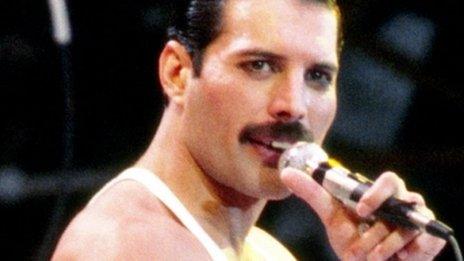Patsy Cline first Country star to return via hologram
- Published
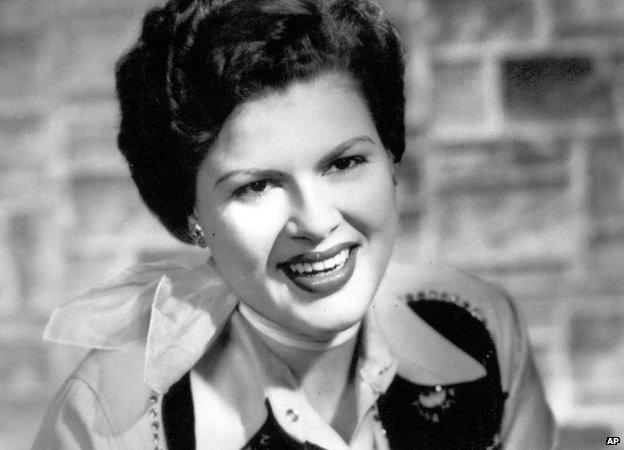
Patsy Cline was the first woman to be inducted into the Country Music Hall of Fame and has featured on a US postage stamp
Late singer Patsy Cline will become the first Country star - and first female - to return to the stage via hologram at a new concert show launching in 2016.
It follows "live appearances" by late rapper Tupac Shakur at 2012's Coachella festival and Michael Jackson at last year's Billboard Music Awards.
Hologram USA's Cline concert will feature her classic hits Crazy, Walking After Midnight and I Fall to Pieces, audience interaction and A-list stars.
Cline died in a plane crash in 1963.
"We chose Patsy as our first Country hologram project, and our first female hologram project, for a reason: she was a pioneer who influenced generations of singers around the globe," said Hologram USA chief executive Alki David, who is working with Cline's widower Charles Dick.
"Patsy Cline will demonstrate how we can bring all the warmth and virtuosity of a true icon back for new audiences."
The company was also behind the Tupac Shakur hologram, external, when he joined Snoop Dogg and Dr Dre on stage at Coachella in Palm Springs, and a recent appearance of US talk show host Jimmy Kimmel, external at 2015's Country Music Awards.
Hologram USA holds the patent to what The Hollywood Reporter recently called "a billion dollar business."
We took a look at some of the other stars given the hologram treatment.
Tupac Shakur
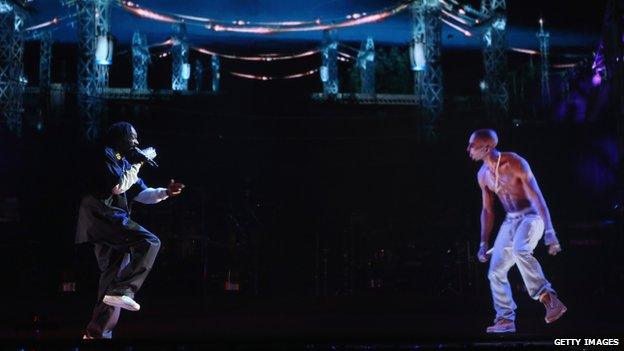
Perhaps the most famous celebrity 'hologram' so far - a 3D projection of Tupac Shakur enabled the rapper to perform with Snoop Dogg at 2012's Coachella festival.
It was reported to have taken four months to create at a cost of up to $400,000 (£243,000).
Other rappers have since embraced the technology with Wu-Tang Clan performing with deceased crew member ODB and Bone Thugs-N-Harmony collaborating with the late Eazy-E at Rock the Bells in 2013.
Michael Jackson
A hologram of Michael Jackson, external appeared at the 2014 Billboard Music Awards, almost five years after his death, to perform the track Slave to the Rhythm from his posthumous Xscape album.
He appeared on stage sitting on a gold throne, before busting out some moves with the backing dancers - both real and fellow holograms - and performing his famous moonwalk.
Hologram USA (also known as HUSA) had tried to put a stop to the Jackson projection, arguing it violated their patent, and legal proceedings are still ongoing. A court has upheld their patent in separate cases against Fox and Cirque du Soleil.
Buddy Holly and Liberace
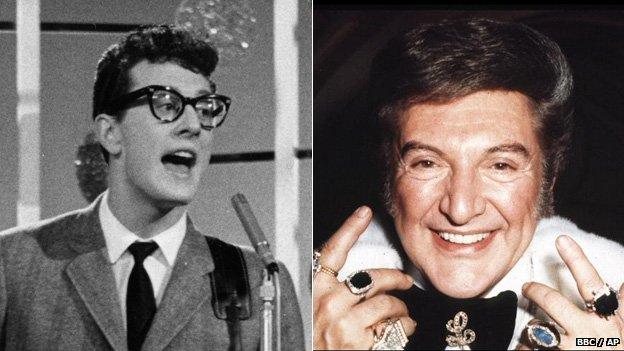
Along with Cline, there are new shows in the works featuring Buddy Holly and Liberace.
The Liberace hologram will naturally debut in Las Vegas before touring the world, although no dates have yet been announced.
It will be a "full-scale, long-running" show including audience interaction, so fans can "feel the warmth from his heart, the sparkle of his eye and the pure lightning from his fingertips" according to the Liberace Foundation.
The virtual Buddy Holly is due to headline a new show debuting in the state of Texas - where the star was born - in 2016.
MIA and Janelle Monae
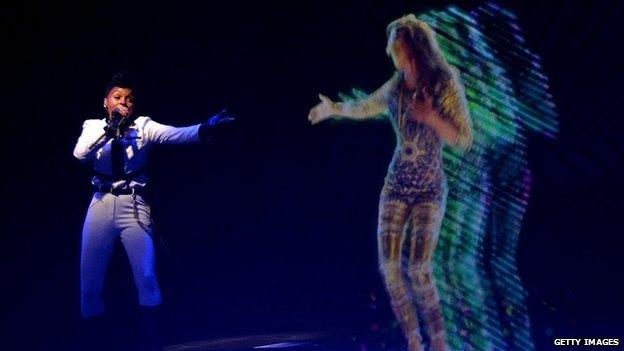
The 3D projections are not just being used to bring deceased artists back to life.
Last year, the technology enabled MIA and Janelle Monae to perform two duets, external at a car launch, despite MIA being in New York and Monae being 3,000 miles away on the West Coast of America.

16th Century technology
While performing holograms might seem futuristic, the illusion actually dates back as far as the 16th Century.
Advancements in CGI may have seen the creation of more lifelike versions of musicians who can actually sing and dance, but it uses a technique known as Pepper's Ghost which comes from Victorian Britain.
Named after British chemist John Pepper the trick, involving projecting the image on an angled piece of glass, was commonly used in 19th Century magic shows, theatre productions and haunted houses.

Julian Assange
Last year the technology was used to help WikiLeaks co-founder Julian Assange escape the Ecuadorean Embassy, external in London for one night in May.
Assange appeared onstage in Nantucket, Massachusetts, as a lifesize, high-definition projection to take part in a live interview at the Nantucket Project's Art + Commerce summit.
He recently marked his third year as a resident of the embassy where he has been seeking political asylum.
Frank Sinatra
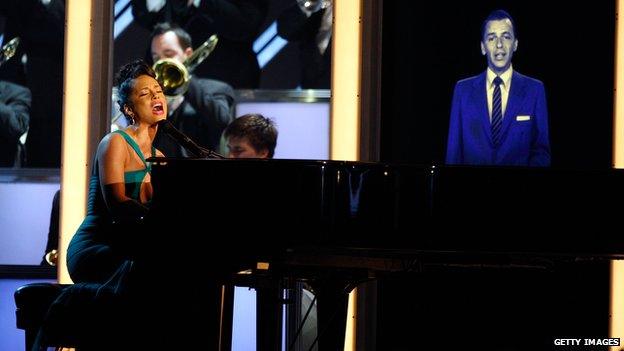
Ol' Blue Eyes was back in 2006, when West End show Sinatra at the London Palladium used cutting-edge technology to bring the rat pack singer to life on stage, external.
At an estimated cost of £5 million, British director David Leveaux combined state-of-the-art video technology with 20 dancers and singers and a 24-piece swing band, in a bit to leave audiences feeling as if they had encountered Sinatra "in person".
Sinatra also appeared at the Grammy Awards in 2008 (pictured above) to perform a duet with Alicia Keys.
Comedy legends
Soon comedy fans will also get to experience legendary stars of days gone by, with US comedy greats at the centre of another Hologram USA project announced this year - the Hologram Comedy Club.
Stand-up stars such as Bob Hope, Rodney Dangerfield and George Carlin will be digitally resurrected as part of a new National Comedy Centre in Jamestown, NY, with each comedy club show set to feature 10 to 12 classic routines of four to five minutes each.
Queen's Freddie Mercury
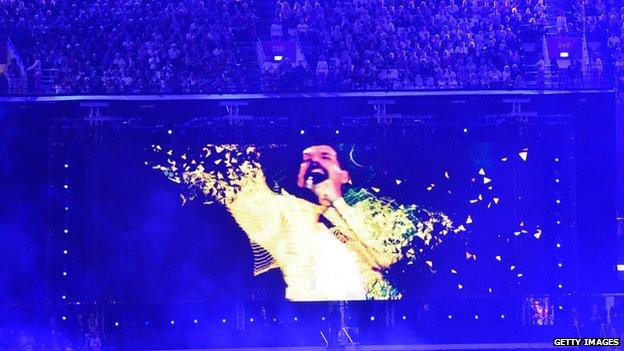
In 2012 Queen guitarist Brian May told the BBC the band were working on "an optical illusion of sorts" which would make late frontman Freddie Mercury appear on stage during a special performance of West End musical We Will Rock You.
The star, who died in 1991, later appeared at the Olympics Closing Ceremony - not exactly as a hologram, but in a video segment of old footage which enabled him to lead the crowd in a sing song and perform with Jessie J.
The band ruled out bringing the technology on tour though, in favour of live singer Adam Lambert.
"I don't want to be touring with a hologram," May told Boston radio station WZLX. "It makes you feel like museum pieces, and we're not fossils, we're alive."
- Published12 June 2015
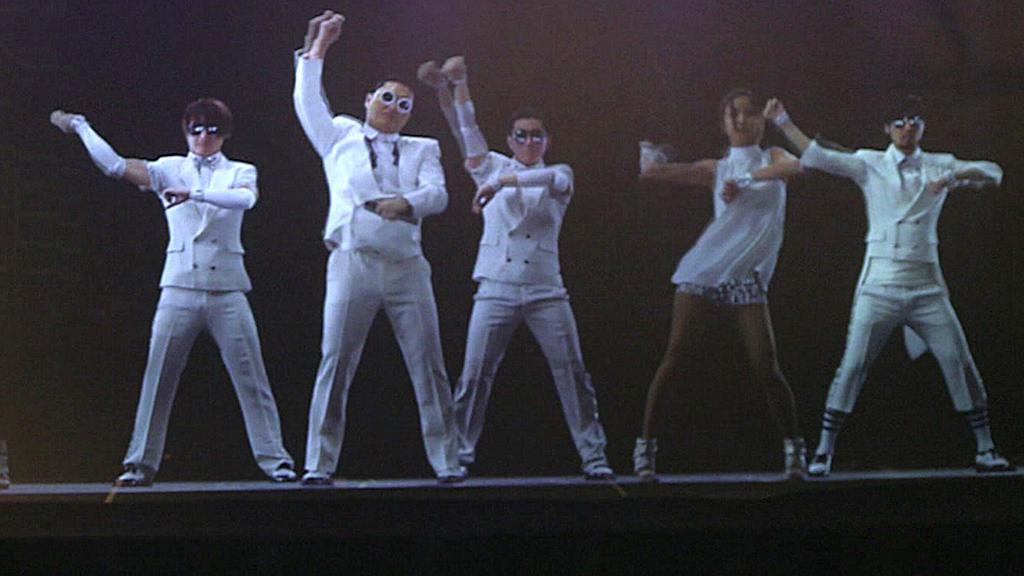
- Published19 May 2014
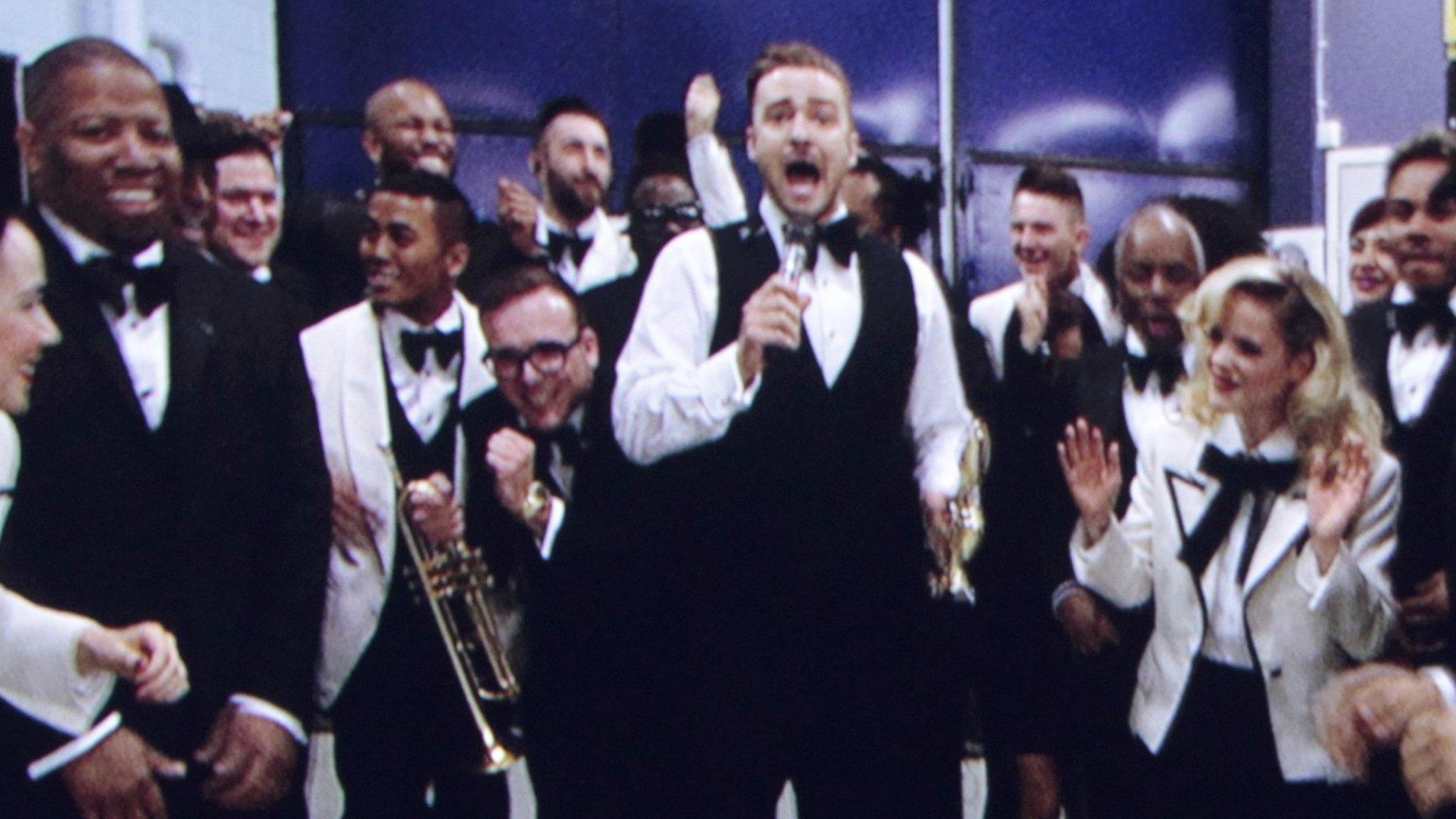
- Published10 May 2012
